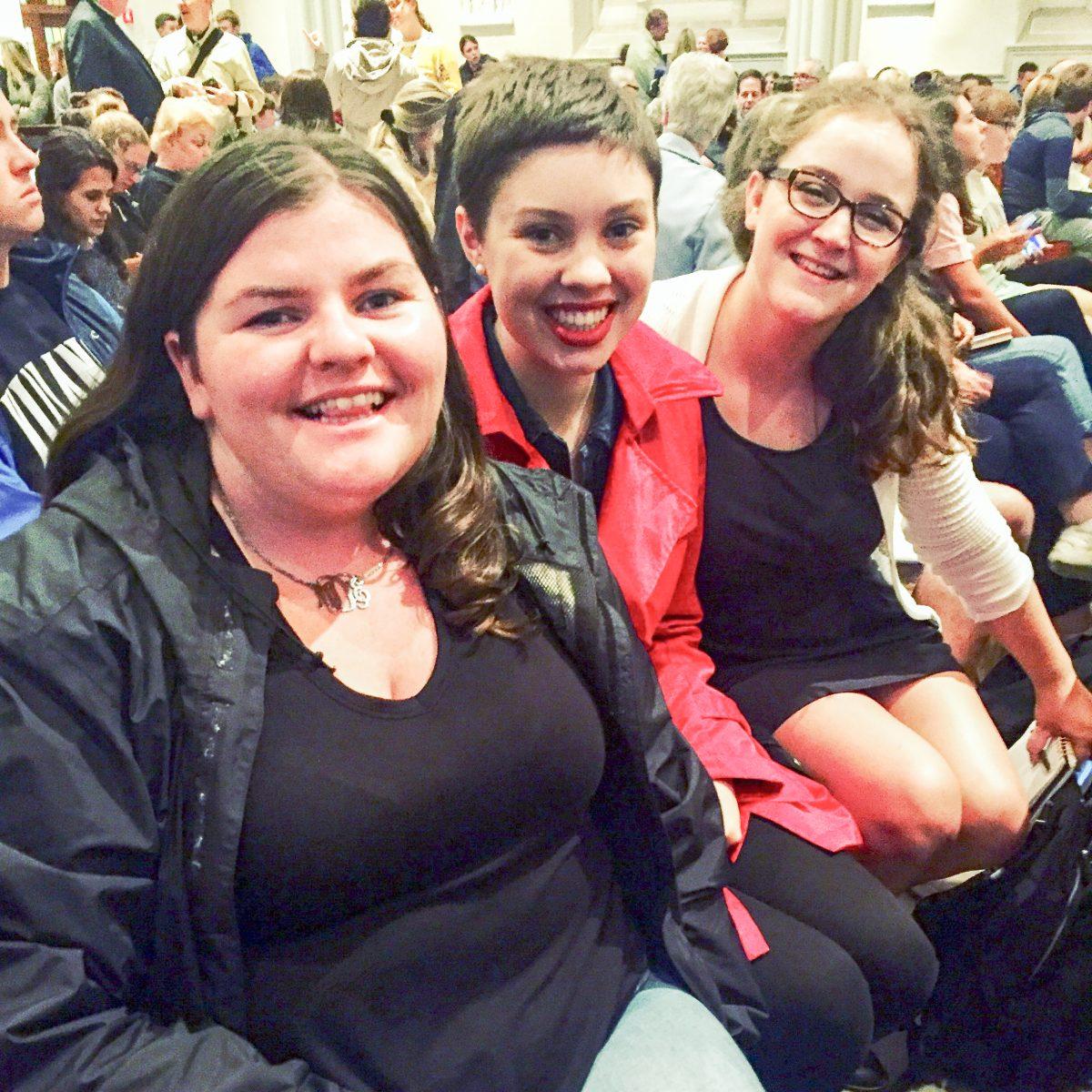Relations between the LGBTQ community and Catholics
I ventured down to Villanova University’s chapel on Aug. 29 to attend a talk by Father James Martin, a Jesuit priest, author and editor of America magazine. However, what many people, including myself, know Father Martin best for is his popular presence on Twitter and Facebook, where he engages his followers in discussion about politics and Catholic faith and values. In some of his most popular posts, Father Martin defends the LGBTQ community against the hateful statements and actions often levied against them, whether by religious leaders or politicians, Christian or nonaffiliated.
Knowing the fervor with which Father Martin advocates for the LGBTQ community on social media, I was elated about the opportunity to attend his talk about his new book: “Building a Bridge: How the Catholic Church and the LGBT Community Can Enter into a Relationship of Respect, Sensitivity and Compassion.” In his talk, Father Martin explained the premise of the book; the Church faces an imperative to repair its relationship with the LGBTQ Catholics and the LGBTQ community and must do so by showing them the basic respect, sensitivity and compassion that any human being deserves by virtue of the Church’s belief that everyone is made in the image of God.
When I was listening to Father Martin’s talk, I couldn’t help but frown at some of his suggestions. Father Martin discussed the Church’s response to the attack on the Pulse nightclub in 2016, a largely gay club in Orlando; one of his main criticisms of Church leadership is that in response to this tragedy, the Church should have offered support specifically to the LGBTQ community and recognized them as victims of hatred and violence.

Furthermore, in the future, the institutional Church should do the same in response to hate crimes against LGBTQ people at home, or to executions of LGBTQ citizens in foreign countries. Sitting in the audience, I couldn’t help but just think “Well, duh” with so much sass I’m quite positive someone watching me could’ve read my thoughts just through how I rolled my eyes.
As a young adult, I’ve strengthened my social consciousness as I’ve aged, along with the relative success of the LGBTQ rights movement. Although the gay rights movement has been active since at least the 1950s, our generation has grown up amidst rapidly changing attitudes about rights, such that support for the LGBTQ community and their rights seems second nature, even as we recognize that homophobia and heteronormativity remain potent forces in society.
After some reflection, though, I’ve been coming to terms with Father Martin’s observations. Because he’s right; many Church leaders did not and do not recognize the violence and hatred specifically directed at the LGBTQ community. And if Catholics like myself and Father Martin ever want the Church to do more to repair its relationship with the LGBTQ community, someone has to start with asking the Church to show some basic respect and dignity to LGBTQ people.
I, for one, am glad Father Martin is using his influence and platform to do just that. The Church leadership has massive influence over the position of the Church in society and politics and over the direction the Church will take. As an adviser to the Vatican’s Secretariat for Communication, Father Martin has a great opportunity to influence the decisions and attitudes of Church hierarchy.
At the same time, though, average Catholics like me might wonder what we can do to push the Church towards acceptance of LGBTQ Catholics. As a Catholic at a Jesuit university, I believe we must move further in our advocacy for the LGBTQ community if we are to truly fulfill our duties to care for the whole person and to be with and for others. We have to resist discrimination against LGBTQ people, such as when our local Philadelphia archdiocesan community resisted the firing of a theology teacher at a local Catholic school.
We have to find the opportunities we encounter on a daily basis to push back against the forces of homophobia and heteronormativity both within the Church and in society as a larger whole. As the body of the Church, what we choose to prioritize and value can have a great impact on how our Church interacts with larger society, and it’s time we start exercising our power.














































